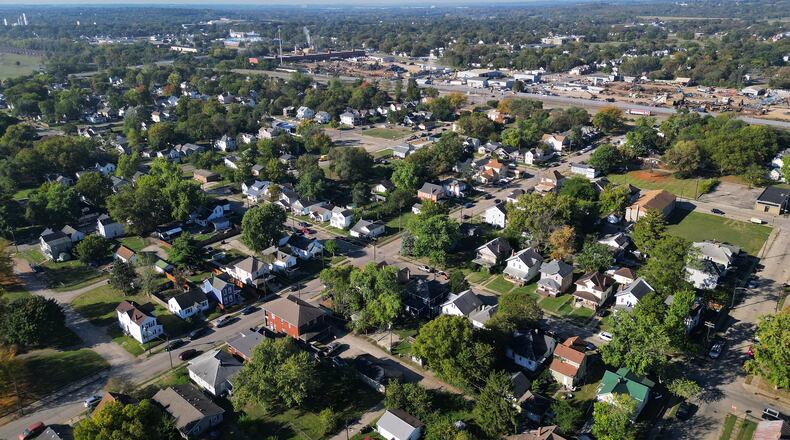Gold Star families
The first bill on the agenda would give total property tax relief to surviving military spouses and cost the state roughly $4 million annually. House Bill 22 was heard by the House Ways and Means Committee Wednesday.
The bill made it all the way through the House last year with a 90-1 vote, but stalled after a single hearing in the Senate. Rep. Brian Lorenz, R-Powell reintroduced the bill with co-sponsor freshman Rep. David Thomas, R-Jefferson, who is “spearheading” tax reform for the majority caucus.
“This bill would assist the spouses of fallen service members with a full homestead exemption, some of these individuals were solely relying on their spouse’s income and others are now raising children as single parents,“ Lorenz told the committee. ”This bill would greatly impact the lives of these Ohio citizens. This bill would retroactively help those people who have already lost so much, while also proactively ensuring that future Gold Star widows are financially assisted.”
In its current form the bill has an important caveat: if the spouse remarries or “cohabitates with another person that does not share a common ancestor” the benefit disappears. It also applies only to service members killed in the line of the duty. The bill’s fiscal analysis from last year assumes — based on information from the U.S. Department of Defense among other sources — the state has roughly 1,200 spouses who would qualify for the tax break.
“I am usually the first person to say that everyone should pay something when it comes to tax policy and the more Swiss cheese we make our policy, the higher the rate for everyone and slippery the slope towards bigger holes more exemptions create,” Thomas said, but added he supports the bill because he believes ”I think this is more of a short-term assistance for those specific families."
Committee member Rep. Beth Lear, R-Galena, was the lone dissenter last year when the committee and then the House overwhelmingly passed the bill. She noted that she, her father, grandfather, husband and now her son are all veterans.
“Gold Star families are near and dear to my heart, yet I struggle with allowing them to be the one and only entity in the entire state of Ohio that gets a full exemption, pays no property tax,” she said. “According to the Legislative Service Commission they would not pay any, but they still get to vote on levies to tax their neighbors. If this was a partial exemption I could get behind that.”
She also asked why they wouldn’t give the spouses of fallen police and firefighters a similar consideration. Lorenz said he’d be happy to discuss giving first responders’ families a tax break too, just not in this bill.
The next step for the bill will be a meeting to hear proponent testimony followed by those individuals and entities who oppose the measure. There weren’t any official naysayers last time.
Residential stability zones
The second bill up for vetting was Senate Bill 42, a piece of legislation that would authorize local governments to establish residential stability zones and offer limited property tax exemptions equal to a percentage of the increase in their assessed home value.
Property tax reform has become a priority statewide after property values exploded post-pandemic. As a result many taxpayers took a big hit last year following the 2023 triennial update when property values soared by an average 37% in Butler County, 34% in Montgomery County and 30% in Greene County. Warren County underwent the sexennial reappraisal last year and the average increase is 27%.
Sens. Hearcel Craig, D-Columbus and Michele Reynolds, R-Canal Winchester, co-sponsored the residential stability zone bill, Senate Bill 42, and Craig urged the Senate Local Government Committee to support it, in light of the dire property tax situation.
“By granting local governments the authority to implement Residential Stability Zones, this bill not only assists homeowners in maintaining their residences but also fosters community resilience and cohesion,” he said.
None of the committee members had any comments or questions on the bill that received two hearings in the Senate Ways and Means Committee last summer. Cost estimates aren’t available because the programs will be crafted by local governments according to their community’s needs.
Many legislators have speculated reforms tanked last year — in part — because some of the ideas carried hefty price tags, funds that were not contemplated in the previous biennial budget.
The Legislative Services Commission is still working on assigning cost estimates to most bills — they have to start from scratch even for bills that are basically recycled — but based on last year’s projections the costliest reform is $819.6 million for the income tax credit “circuit breaker” offered by the Senate.
Of the 11 property tax bills currently on the docket only two haven’t yet been assigned a committee for vetting.
About the Author
